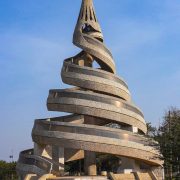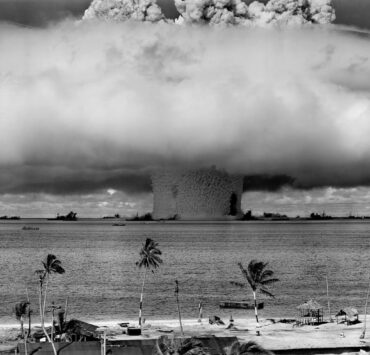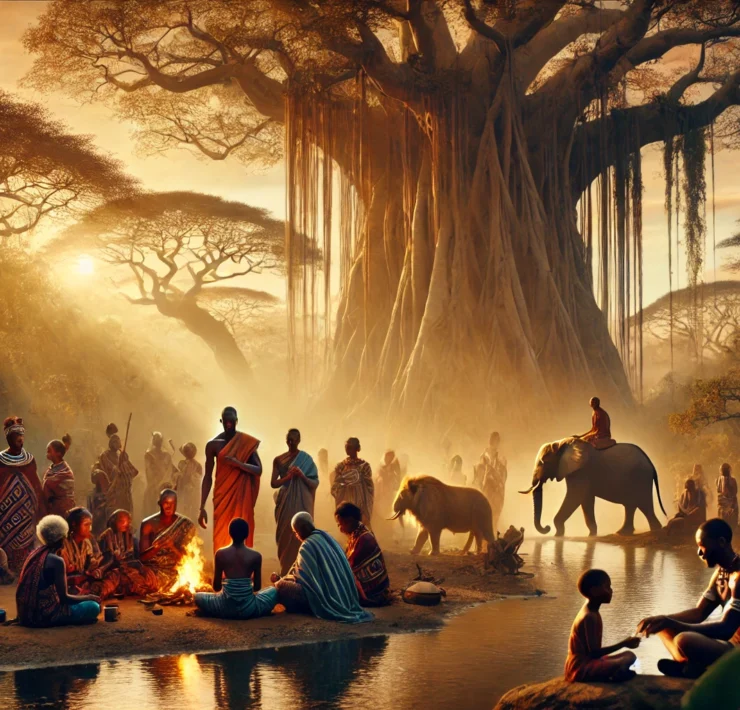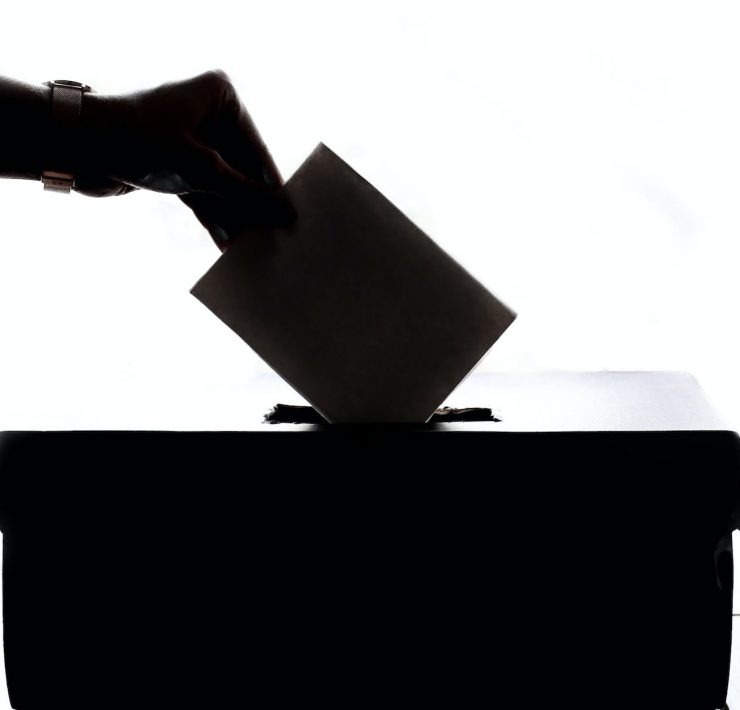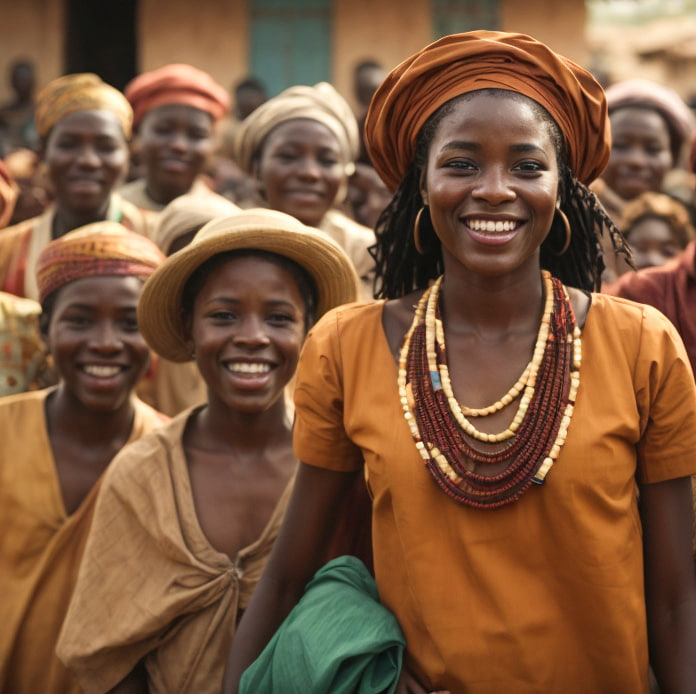
Dr. Bhengu is an Independent Researcher on Afrikan philosophy, Afrikology…
“Our purpose in life is to leave a legacy for our children and their children’s children. For this reason, we must correct history that at present denies our humanity and self-respect. We must restore our Afrikan personality, culture, industry and land”. (Queen Mother Moore, 1985).
—————————————————————————–
A study of the African universe is inevitably a study of African ideas of the human being, for the African view of the world is a human-centred one. We believe that a man is a self-defining animal. Rather than a being able to exist in isolation from all else that there is, we may view him/her as an organism, relying for his/her existence on living in a state of exchange with his surroundings – being able to influence them but also being influenced by them. But even more than this: we may consider him/her as living in the world in a state of exchange with other agents both like and unlike himself, forming communities such that together they can do more than they could ever do alone. As an agent immersed in the world with other agents in community with them, man faces the task of acting not just intelligently, but responsibly.
Thus, even if he is quite alone when acting, he must be able to evaluate his own actions as he performs them, in other people’s terms – this is part of what it is to be able to say that he himself is responsible for his own actions. This is the task of man as a socially responsible agent immersed in a community in the world with other agents like himself: his task is to give form to the world and his life, not just to describe it. Such an image of man involves not only a shift in standpoint from one in thought to another in action, it is also an intrinsically social view of man. Rather than an egocentric self, it is a view of man as a person among other persons, a self with a person, a way of presenting himself to other selves.
Man is not just man in nature alone, he is also a man in culture. And a man’s culture is not to be characterized in terms of objective properties like all the other things that he sees in nature from within his culture. The culture from within which views the world and deliberates upon how to act in it structures his consciousness, and can only be characterized in terms of his beliefs.
As a human being, you are surrounded by life space. All the persons and things of the universe are invitations to relationship and to action. They offer futures to you. In this particular moment of mankind, the offerings are staggering in range and possibility. As a human being you gradually build up a life-world, which, for you, is your destiny. It is an arena where you play out the struggle of life versus death for you. The rest of your life-world becomes the foreground and pioneer settlement of your life.
No person exists in and out of himself/herself. You exist physically only as you are immersed in an ocean of life-giving air. One exists as a man only because you have participated from the moment of birth in a world of human beings and culture. You are a self-in-a-world, not just a self. “To be” is not only you and the world, but it means to co-create a life world. We permeate each other; we are present in each other. We influence and form each other’s personality. We exude feelings and actions, which help determine the feeling tone of our home, our class at school, the other person with whom we are talking. We are constantly offering good or not-so-good possibilities to some situation.
This book attempts to reveal a lot about the origin and history of Ubuntu philosophy and what other races feel and think about it. It further shows how different people interpret Ubuntu differently, and how it is compared to other Western philosophies. The book attempts to show that Ubuntu is, indeed, a recipe for world order.
The need to think afresh about moral problems is ever present and particularly great in a period of rapid economic and social change and rapid advance in knowledge of human nature.
In the pages that follow, it is indicated that Ubuntu is an instrument of peace. Therefore, to heal the wounds of our unpalatable and painful history, and the world, Ubuntu, it is argued here, is one of the best medicines to use because it is the key to the creation of a better society.
Through Ubuntu we are weaving a cord of destiny – a destiny that is beyond the reach of the spirit-forms, and should they (spirit-forms) try to ascend to that destiny, they will break their tiny toes. Once we reach that destiny, every body, friends and foes alike, will preach it to the world. This philosophy (Ubuntu) is not like a ship that can sink, but it is like a sea on which many ships sail. It is not a dogma; but a set of attitudes to peace, justice and equality. It is the light that illuminates the entire world.
We need to embrace Ubuntu in such a way that when we see a woman, whether black or white, we say, “You are my sister”, and when we see a man, whether rich or poor, whether white or black, we say “You are my brother”. Once we achieve this level, the night would be over and the day would have begun to embark on our journey towards reaching our destiny. We live in a time of cultural disarray and cultural decay: an age filled with ruins and fragments of morality. Hence, our intellectual landscapes are littered with allegorical tales of deterioration rather than dramative narratives of reconciliation. Our spiritual and social “Being” is benumbed and chilled to a state of impotency. Our ethics have become fragments of moral decay – where the generation we live in, has become insensitive to the presence and flow of the life-saving element of Ubuntu within the communal veins of our society. We have thus given in to forces that are leading us to the point of self-hate and self-destruction. This is being evidenced by the social ills that have become a plaque to our human society.
Human interest is the basis of all value and that human fellowship is the most important of human needs. I strongly believe in humanism because it has taught me, and many others, to value human dignity. It has taught me that all human beings are born free and equal in dignity and rights. You possess human dignity if and only if you maintain it within yourself and you want other people to recognize it. No one gives you human dignity.
People can only acknowledge and affirm it. You nurture and nourish it yourself; if you have self-respect. Healthy self-worth shows that you have self-respect. Dignity goes with worth. Decency towards others comes from your sense of dignity. You treat other people decently if you treat yourself in that way. We are not able to give to others what we ourselves do not have.
We believe that morality is the best security of law and the surest pledge of the duration of freedom. But the quest for more knowledge about Ubuntu philosophy continues. This keen interest in this philosophy is amongst all peoples of the world, since it is an essential human philosophy that makes men and women view themselves as integrated units within the community.
- To survive and prosper in the global village, we need to acquire what is destined to be one of the most basic humanistic tools in the new millennium to restore our human dignity.
- There seems to be a conceptually visible intellectual HIV virus that is destroying and reducing the cells of humanity to ruins and fragments, at at the dawn of the new millennium, multiple choices have to be made for peace and harmony in the world. It is one’s belief that Ubuntu has a very powerful role to play in the creation of conditions for peace and harmony, particularly because it has been proved that it is the best recipe for the new world order.
- This is a journey that excites and enlivens one. In our present situation in the world, there is a desire from all responsible people for moral regeneration, and very often reference is made to Ubuntu. The belief is that one day, mankind will be measured by its compassion, and I have made it my duty to work towards that goal. It is an ideal that inspires me and many others passionately.
Subscribe now for updates from Msingi Afrika Magazine!
Receive notifications about new issues, products and offers.
What's Your Reaction?
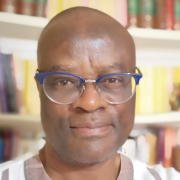 PIN IT
PIN ITDr. Bhengu is an Independent Researcher on Afrikan philosophy, Afrikology and Egyptology. He is an established and experienced author, self-publisher and managing director of Phindela Publishing Group & Editor-in-Chief of INQABA Journal, a quarterly publication that specializes on Afrikology. He describes himself as an Afrikan of Nguni (Zulu) extraction, but then a global citizen. Black, but being in total fusion with the world, in sympathetic affinity with the Earth... “I am black not because of a curse, but because my skin has been able to capture all cosmic eluvia. I am truly a drop of the sun under the earth.” He says.









